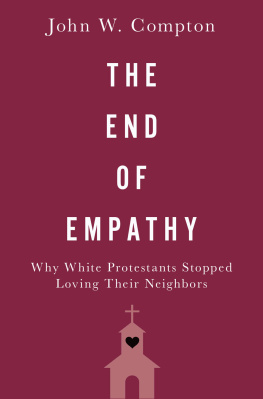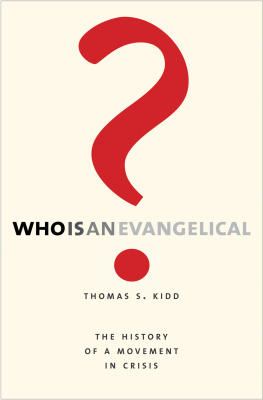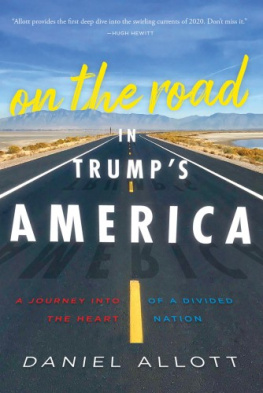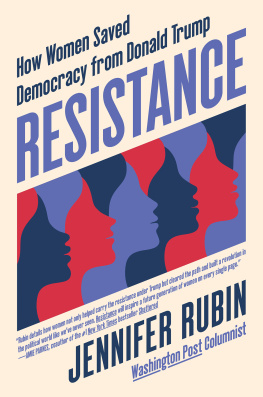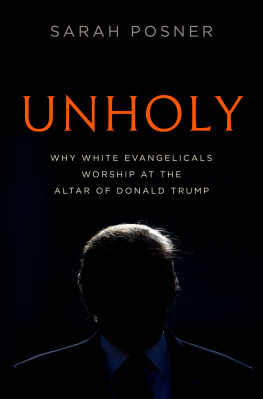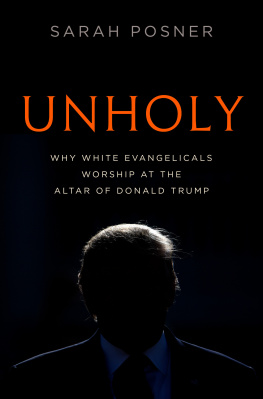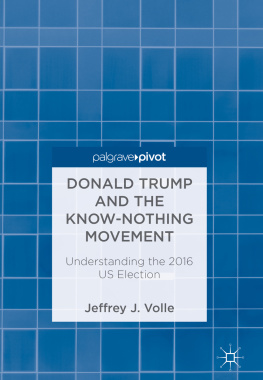The End of Empathy

Oxford University Press is a department of the University of Oxford. It furthers the Universitys objective of excellence in research, scholarship, and education by publishing worldwide. Oxford is a registered trade mark of Oxford University Press in the UK and certain other countries.
Published in the United States of America by Oxford University Press
198 Madison Avenue, New York, NY 10016, United States of America.
Oxford University Press 2020
All rights reserved. No part of this publication may be reproduced, stored in a retrieval system, or transmitted, in any form or by any means, without the prior permission in writing of Oxford University Press, or as expressly permitted by law, by license, or under terms agreed with the appropriate reproduction rights organization. Inquiries concerning reproduction outside the scope of the above should be sent to the Rights Department, Oxford University Press, at the address above.
You must not circulate this work in any other form and you must impose this same condition on any acquirer.
Library of Congress Cataloging-in-Publication Data
Names: Compton, John W., 1977 author.
Title: The end of empathy : why white protestants stopped loving their
neighbors / John W. Compton.
Description: New York, NY, United States of America : Oxford University
Press, 2020. | Includes bibliographical references and index. |
Identifiers: LCCN 2019044729 (print) | LCCN 2019044730 (ebook) |
ISBN 9780190069186 (hb) | ISBN 9780190069209 (epub) | ISBN 9780190069216 (online)
Subjects: LCSH: Christianity and politicsUnited States. |
EmpathyReligious aspectsChristianity. | United StatesChurch
history19th century. | United StatesChurch history20th century.
Classification: LCC BR516 .C687 2020 (print) | LCC BR516 (ebook) |
DDC 280/.409730904dc23
LC record available at https://lccn.loc.gov/2019044729
LC ebook record available at https://lccn.loc.gov/2019044730
Contents
These findings were fairly well established by the time of the 2016 presidential election. Still, the news that most evangelicals cast their ballots for Donald Trump caught many commentators off guard. In part this was because what was known of Trumps personal life was sharply at odds with evangelical teachings. But it was also because Trump, in contrast to previous Republican nominees, made no effort to square his conservative policy positions with the Christian ethic of love and compassion. In fact, his chief calling card was his promise to show no mercy to those on the margins of American society.
The news of Trumps strong showing with white Protestant churchgoers soon sparked a broader debate concerning the relationship between religiosity and liberal democracy. For many commentators on the Left (as well as a few on the Right), the 2016 election returns confirmed a long-held suspicion that religious citizensor at least white Protestant onesare less than fully committed to the egalitarian norms of toleration and mutual respect that are often said to undergird the American constitutional system. How else to explain devout
A glance at the historical record suggests that the second group of writers had a point: whatever else may be said about the relationship between Christianity and liberalism, it must be acknowledged that, at least in the American case, advocates of egalitarian reforms have often employed religious ideas and symbolism to great effect (as have their opponents). But to highlight the religious reform movements of the past is to raise a more fundamental question: what happened to this more tolerant and empathetic faith tradition? How, in other words, did the connection between Protestant religiosity and concern for the marginalized become so attenuated as to allow a candidate like Donald Trump to win the churchgoing vote in a landslide?
The most common way of answering this question is to point to the relatively recent rise of evangelicalism as the dominant strand of American Protestantism. For most of the nations history, the bulk of American Protestants were not evangelicals but rather mainline Protestantsa category that includes the Congregationalists, Episcopalians, Methodists, Presbyterians, Disciples of Christ, and some branches of the Baptist and Lutheran faiths. During the first half of the twentieth century, most of these denominations experienced strong growth, even as their leaders adopted left-of-center positions on issues such as child labor and civil rights. This changed during the late 1960s and 1970s, when the mainline churches began suffering serious declines in membership and giving, and when evangelical churches and denominations, such as the Southern Baptist Convention (SBC), began experiencing strong growth. By the end of the 1970s the balance of power in American Protestantism had shifted to the theologically conservative evangelical churches, though it was initially unclear how (or whether) this would affect the political realm. But then came the presidential election of 1980, when a series of large and well-funded conservative religious groups, led by Jerry Falwells Moral Majority, entered the political arena in support of former California governor Ronald Reagan. The new groups, which were dominated by evangelical and fundamentalist clergymen, adopted hardline conservative positions not only on issues such as abortion and school prayer, but also on such seemingly secular subjects as welfare, defense spending, and taxes. And while no one could have predicted at the time of Reagans presidential victory that evangelical elites would one day enter into a strategic alliance with a playboy real-estate tycoon, it was then that evangelicalism, a faith tradition based on theological conservatism, became firmly wedded to the newly conservative political agenda of the Reagan-era Republican party.
Answers to why this shift occurred are more varied, but one popular theory holds that the politicization of evangelical religiosity was fueled by a sense that believers were losing, or had already lost, control of the wider culture. In some versions of the story, the sexual revolutionincluding the advent of legalized abortion and the movements for womens and gay and lesbian rightstakes center stage as the event that launched the Religious Right. Whatever the immediate trigger, the underlying cause in most accounts is a growing sense of alienation, together with the conviction that aggressive political action was needed to prevent further erosion of traditional Protestant (or in some versions Judeo-Christian) values and prerogatives.
Without question, each of these narratives contains a grain of truth. Yet upon closer inspection, a focus on cultural alienation alone cannot fully account for the increasingly strident conservatism exhibited by white Protestants over the past half-century. The most serious problem with the conventional story is that it cannot explain the long history of Protestant social activism that preceded the Reagan Revolution. After all, during the 1910s, the 1930s, and the early 1960salso periods of increasing diversity and unprecedented social changemillions of white middle-class Protestants channeled their anxieties into progressive reforms, helping to abolish child labor, establish reasonable workplace regulations, construct the social safety net, and enact civil rights laws that transferred resources and political authority to minority groups. Nor can strategic outreach from conservative businessmen or political operatives fully explain the shifting political valence of Protestant religiosity. For while it is true that conservative executives and libertarian activists succeeded in forging close ties with leading evangelicals during the 1970s and early 1980s, the more interesting question is why previous efforts to cement an evangelical-business alliance met with virtually no success. As we shall see, postwar conservatives spent a small fortune attempting to foment religious opposition to the New Dealera welfare statebut to no avail. Why did such efforts suddenly gain traction in the 1970s and 1980s?

